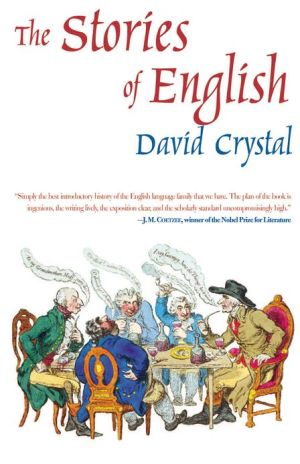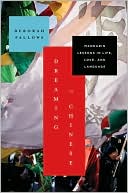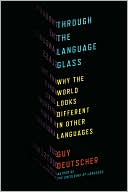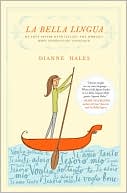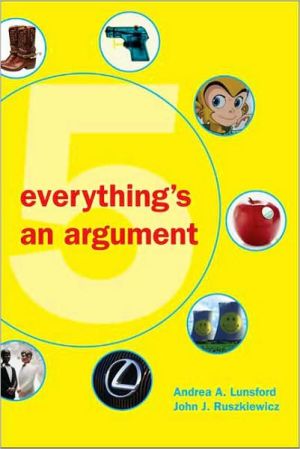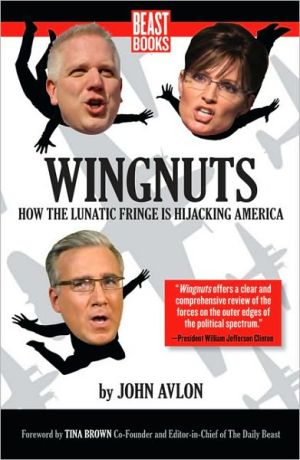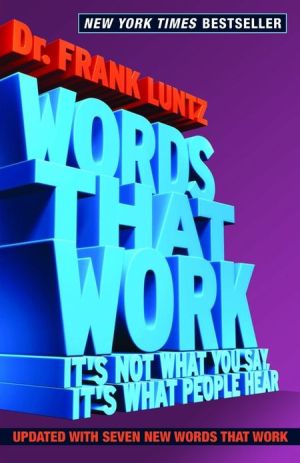Stories of English
"The Stories of English is a history of the language by David Crystal. Crystal turns the history of English on its head and provides an original view of where the richness, creativity, and diversity of the language truly lies - in the accents and dialects of nonstandard English users all over the world. Whatever their regional, social, or ethnic background, each group has a story worth telling, whether it is in Scotland or Canada, South Africa or the United States - and Crystal relates the...
Search in google:
Crystal (honorary, linguistics, U. of Wales-Bangor) has written widely on language in general and English in particular. He begins here by tracing the history of how Standard English came to be the privileged tongue it is. Then he recounts the stories of the other facets of the language over the past 1,500 years, which are rarely told. His topics include the Celtic language puzzle, understanding Danes, a trilingual nation, where the -s ending came from, avoiding transcriptional anemia, the case of y'all, and dialect in Middle Earth. Annotation ©2004 Book News, Inc., Portland, OR Thke New York Times - William Grimes Mr. Crystal, in arguing that "eternal tolerance" should replace "eternal vigilance," chooses his examples brilliantly. Those of us who tut-tut when "nuclear" comes out "nucular" need to be reminded that polite Victorians pronounced balcony with the stress on the second syllable, like baloney. Not so long ago, correct English did not permit a sentence like "John is being promoted." The progressive passive of "is being" was despised by refined stylists. Students do need to learn the rules, just as they need to understand computer protocols, as a means to an end. Standard English, and the basic rules of grammar and syntax that govern it, have to be taught. But Mr. Crystal assigns no particular value to "are not" over "ain't." In fact, he likes to sum up his vision of the future of English, or Englishes, in one cheery, defiantly ungrammatical American sentence: "We ain't seen nothin' yet." Full speed ahead to the 14th century.
Ch. 1The origins of Old English15Ch. 2The old English dialects34Ch. 3Early lexical diversity57Ch. 4Stylistic variation in Old English86Ch. 5The transition to Middle English105Ch. 6A trilingual nation121Ch. 7Lexical invasions144Ch. 8Evolving variation169Ch. 9A dialect age194Ch. 10The emerging standard222Ch. 11Printing and its consequences254Ch. 12Early modern English preoccupations285Ch. 13Linguistic daring311Ch. 14Dialect fallout338Ch. 15Stabilizing disorder365Ch. 16Standard rules392Ch. 17New horizons419Ch. 18Linguistic life goes on453Ch. 19And dialect life goes on484Ch. 20Times a-changin'514AppThe location of the towns and counties of England referred to in this book535
\ William GrimesMr. Crystal, in arguing that "eternal tolerance" should replace "eternal vigilance," chooses his examples brilliantly. Those of us who tut-tut when "nuclear" comes out "nucular" need to be reminded that polite Victorians pronounced balcony with the stress on the second syllable, like baloney. Not so long ago, correct English did not permit a sentence like "John is being promoted." The progressive passive of "is being" was despised by refined stylists. Students do need to learn the rules, just as they need to understand computer protocols, as a means to an end. Standard English, and the basic rules of grammar and syntax that govern it, have to be taught. But Mr. Crystal assigns no particular value to "are not" over "ain't." In fact, he likes to sum up his vision of the future of English, or Englishes, in one cheery, defiantly ungrammatical American sentence: "We ain't seen nothin' yet." Full speed ahead to the 14th century.\ — Thke New York Times\ \ \ \ \ Publishers WeeklyLeading British linguist Crystal (Shakespeare's Words) immediately distinguishes his pluralistic study of English's evolution from the standard, narrowly focused histories by describing not only how it evolved on an isolated island example from a Germanic language to the standard English we know today., but also on marginalized regional dialects, vernaculars and other "nonstandard" examples, beginning with the origins of Old English. He shows, for example, how even Chaucer and Shakespeare embraced dialects in The Canterbury Tales and Henry V. There are also lighter moments, such as Crystal's examination of the Anglo-Saxon intonations of Yoda in Star Wars and of Tolkein's Middle Earth idioms. Writing of the 18th century, the author contrasts the proscriptions of Dr. Johnson and others regarding spelling, grammar and pronunciation with the efforts of Americans such as Noah Webster to differentiate American from British English. (Regional and ethnic variations elsewhere in the British Empire receive more cursory treatment.) However, Crystal glosses over the current status struggle in the U.K. between more "authentic" dialects, such as the northern Liverpudlian, and newer ones, such as the suburban Estuary English. As for the language's future, Crystal wishes to see Standard English taught alongside familiarization with the varieties of dialects. Although he doesn't spell out how to accomplish this, his well-informed and appealing book makes a good case for the importance of dialects. 9 b&w illus., 12 maps. (Oct. 5) Copyright 2004 Reed Business Information.\ \ \ Library JournalCrystal (Shakespeare's Words; Language and the Internet) is a professor of linguistics who was awarded an Order of the British Empire in 1995 for his services to the English language. His wonderful postmodern study of the history of the English language, for both the scholar and the educated reader, breaks new ground in its attention to nonstandard English and to dialectal dialog in literature at all periods of the development of the language. Crystal shows how linguistic change and other aspects of historical and cultural change are linked and delights in geographic and ethnic variation. Beginning with "The Dream of the Rood," an Old English or Anglo-Saxon poem, he reveals that "linguistic purity" has never existed and that English is far more interesting and complex than standard accounts of normative language have indicated. The book reads easily. As its title implies, it tells many stories-and tells them well. Essential for all libraries.-Carolyn M. Craft. Longwood Univ., Farmville, VA Copyright 2004 Reed Business Information.\ \ \ \ \ Kirkus ReviewsA celebrated linguist argues that all versions of English are created equal and that the reign of Emily Post-prescriptivists who insist that Standard English is "right" and all the rest "wrong" is nearing its end. Crystal (Language Death, not reviewed) has an interesting point: If Standard English is really so standard (and invariable), why are there so many different usage manuals out there? Why do so many English words have variant spellings? The author insists that one of the functions of Standard English is to marginalize those who don't (or can't) employ it, and he realizes, too, the ugly class and racial implications. He does not urge schools to eschew the teaching of Standard English, but he does suggest that teachers lighten up, that they not make students feel their particular version of English is inferior. Crystal says that the best users of English are those who have a capacious closet full of linguistic clothing to wear. Throughout this massive and learned and often provocative tome, the author demonstrates repeatedly that common conceptions about language are often historically inaccurate-split infinitives bothered no one until recently (likewise sentence-ending prepositions). Crystal educates in a variety of ways. He expands his fairly traditional discursive text by following each chapter with an "interlude" that focuses on some particular issue (e.g., the history of "y'all"), and each chapter contains boxed inserts that expand the context of the subject (e.g., details about John Caxton and Noah Webster). And there are numerous maps and charts of various sorts, including a dandy that illustrates why, in our legal system, we often use double constructions ("fit and proper,""will and testament"). It's principally ignorance that fluffs Crystal's feathers: Ahistorical language purists annoy him as do those who make spurious and excessive claims for, say, the contributions of Shakespeare to the lexicon. A dense, significant history. Had it been shorter and otherwise more reader-friendly, it could have made waves. Regrettably, only ripples will likely ensue. (9 b&w illustrations; 12 maps)\ \
